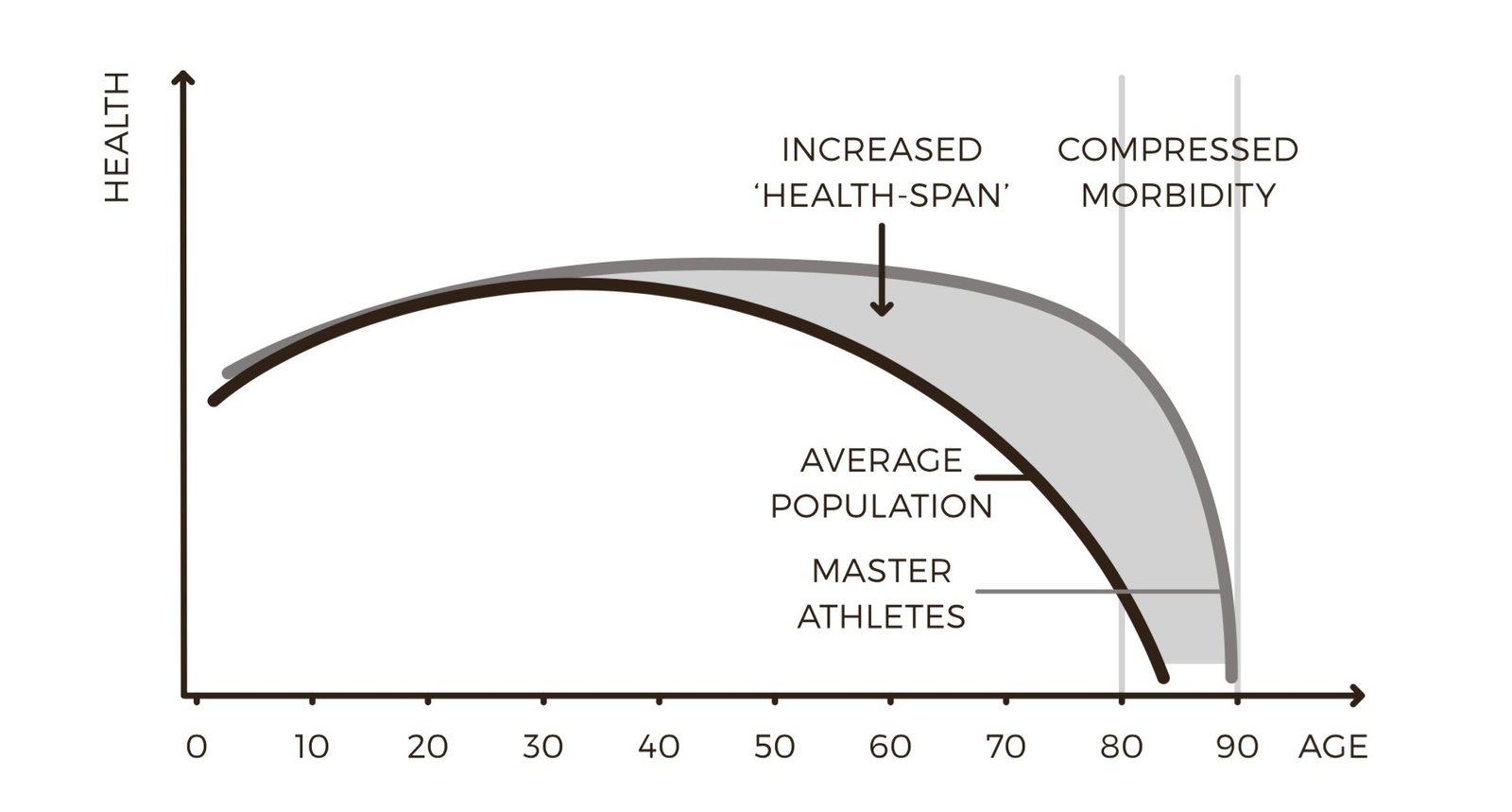Most people when asked if they would like to be healthier, fitter, stronger, happier in their old age would answer yes, of course! The next question then is how can we do this? Despite most of us wanting this, only a seemingly lucky few are able to reach old age able to do all the things they would love to do both physically, cognitively or socially. There are many reasons for this, with usually at least one applying to most people, but my biggest qualm is if the main reason is not knowing how. Yes there are always a lucky few who will achieve great longevity without really trying, but it is also true that many more of us could achieve healthier longevity if we just understood more and started acting on it earlier.
In an age of endless amounts of (often conflicting) information about health and wellbeing, it can be difficult for even health professionals (let alone the lay person) to calculate a path to successfully increasing our health span. Health span is the amount of time we spend in good health, able to function to our full desire free of disease or morbidity – this is different to our lifespan which is purely how many years we are alive. Even if one knew the ideal path, executing it is just as big a challenge. Currently the average gap between health span and life span (i.e. the number of years spent suffering in ill health or disability) is around 9 years.
Longevity medicine aims to help you map out this path with more clarity. There is no “one size fits all” solution to health and longevity however, because we all have different circumstances, whether it’s genetic, physical, psychological or social. The reality is the answer is different for every one of us, which is why so many people following the next big trend of how to lose weight or be healthier often fail. Traditional medicine often fails on at least two points when it comes to increasing health span. First, it often intervenes way too late in the game to make a meaningful impact on outcome. Second, when it does intervene the advice it gives is often lacking in detail, depth or is not specific enough to work for the individual in front of them. To give an example, all doctors would tell their patients to “exercise more”, but how many doctors are able to give the details? – how much, how often, how fast, what kind of exercise, what weight, how many reps, how to execute an exercise with correct form, etc.
This is one of the inspirations behind why I founded Agami Health, to bring the science of exercise, nutrition, longevity and medicine together in one place. As a doctor who has reaped the benefits of a lifelong passion for continual physical challenges, I felt uniquely placed to bring together these passions.
Epigenetic Levers
There is the age old argument of nature vs nurture, genetics vs environmental influences on our health. How much can we really control our health outcomes? Epigenetics is the study of the interface of these two sides of the argument. It is the science of how every interaction of our cells with the environment we create for them directly affects genetic expression. Genetic expression is how our genes are translated into who we are and everything our body does. If our genes are thought of as the keys on a piano, genetic expression is the song that the keys play. With this analogy you can see the fact that the number of keys (genes) is orders of magnitude smaller than the possible number of songs (genetic expression) that can be played. The point here being that we can all learn to play the song we choose with the keys we have. The great empowering point here is that every human on the planet shares 99.6% of genes – in other words, only 0.4% of our keys differ at most from every other human being, giving each of us great power to play the song we choose, guide our own genetic expression and ultimately our health.
Building on this we then ask what are the greatest influences on gene expression, or epigenetic levers. We consistently find these to be “Four Pillars” of health – exercise, nutrition and metabolism, sleep and emotional wellbeing. All four of these topics are so vast and the research often so conflicting that it can misguide even the most well intentioned of us trying to find our path to health. There is however a growing body of increasingly stronger evidence for a lot of the overarching principles of optimising these four pillars of health. My aim is to translate this for my patients into actionable plans to help them on what is a lifelong journey of striving for good health.
At Agami we offer health optimisation packages which focus on all “Four Pillars” of health but we are most passionate about getting down to the finer details of your exercise and nutrition plan for successfully optimising your health and wellbeing. These are often the biggest levers to pull in most people to achieve great results. We are also able to carry out advanced diagnostic and genetic testing looking at your individual risk profile in terms of metabolic health, as well as other important chronic diseases. We find this helps us to personalise and tailor our treatment plan and advice to each individual.
If you are interested in how Agami can help you on your health journey , please contact us for a free 15 minute consultation with myself to discuss further.


